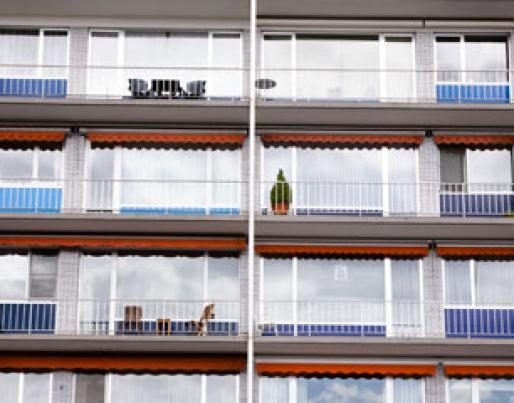CondoReno: enhancing condominium renovations and One-stop-shops in Europe

CondoReno: enhancing condominium renovations and One-stop-shops in Europe
(Note: opinions in the articles are of the authors only and do not necessarily reflect the opinion of the EU).
Authors
Under the EU Green Deal, the European Commission aims to reduce greenhouse gas emissions and to achieve climate neutrality in Europe by 2050. Also, considering that only 1% of buildings are retrofitted each year and that 75% of the building stock is energy inefficient, the Commission launched the Renovation Wave initiative with the aim to renovate 35 million building units by 2030 and to double the renovation rate, which will improve energy efficiency while driving the clean energy shift. Indeed, at the present moment, buildings are one of the main sources of energy consumption in Europe, accounting for more than a third of EU energy-related emissions.
In this context, the Energy Performance of Buildings Directive (EPBD) also plays a crucial role in the EU's efforts to reduce energy consumption and create a more sustainable built environment. The Directive, currently under revision, is expected to establish minimum energy performance standards, building renovation passports, national building renovation plans, an EU framework for Energy Performance Certificates, along with introducing definitions and frameworks for Zero-Emission Buildings (ZEBs) and deep renovation, One-stop-shops for energy efficiency in buildings (OSS), and whole life-cycle greenhouse gas emissions/global warming potential.
Therefore, in order to support both the Renovation Wave and the need to improve the energy efficiency of buildings within the EU Member States, the EU-funded project CondoReno leads the development of Integrated Home Renovation Services (IHRS) for condominium associations interested in energy renovations, which emerge as pivotal considering that 46% of the population in the European Union lives in flats. The aim is that the IHRS services developed in the project offer support across the whole renovation process for buildings co-owned by multiple private homeowners.
This LIFE project is set to contribute to the goals of the recast EPBD in various ways:
- With the goal of reducing energy consumption in buildings since CondoReno assists condominium associations in identifying energy-saving opportunities within their property;
- CondoReno addresses the challenge of implementing energy renovations in buildings co-owned by multiple private homeowners, by providing guidance and support throughout the renovation processes;
- CondoReno helps condominium associations obtain energy performance certificates for their buildings;
- CondoReno supports condominium associations in developing long-term renovation strategies for their buildings, aligning with the EPBD's ambition to improve the energy performance of existing structures;
- CondoReno can educate condominium owners and associations about the importance of energy efficiency, which aligns with the EPBD's aim of raising public awareness regarding the benefits of energy-efficient buildings;
- By providing comprehensive support for the entire renovation journey via all-inclusive OSS, CondoReno can help accelerate the pace of energy renovations in condominiums, which is crucial for achieving the EPBD's energy efficiency targets.
- By highlighting the pivotal role of local OSS for energy efficiency as a pragmatic tool and knowledge and guidance hub to bolster energy efficient buildings.
Already in 2021, the European Builders Confederation (EBC), together with the International Union of Property Owners (UIPI), published a position paper welcoming the explicit reference to OSS in the Renovation Wave strategy. By acting as a single contact point for sustainable renovation, thanks to a user-oriented approach, OSS are one of the pragmatic and local solutions to address the complexity and challenges of renovation works.
OSS should in principle ensure a full range service path: from the design of the whole renovation and the creation of an ad hoc financial plan to the coordination of the process and the provision of – or the facilitation of access to – adequate and affordable funding or financing schemes. However, so far OSS for energy efficiency across the EU neither constitute a uniform service package, are sufficiently available and funded, nor follow a standardised approach. Instead, they too often focus exclusively on some specific aspects such as awareness-raising or the coordination of market actors (e.g., auditors, installers, technicians). To overcome these challenges, EBC and UIPI proposed to encourage funding of comprehensive/all-inclusive OSS, ensure that first-level advice is free of charge, allow consumers to choose their most trusted and qualified professionals as well as to involve relevant stakeholders in the development and management of OSS.
To conclude, although client’s demands are a strong driver for renovation projects, building renovations rely on the supply side as well, including contractors, manufacturers, and technology providers, since they offer energy-efficient products and services that are essential for condominium renovations. It is relevant to note that suppliers often drive innovation in the construction and renovation industry; they can introduce cutting-edge technologies and materials that can significantly enhance the energy efficiency of buildings, as long as they bring a direct added value to the everyday tasks in renovation project conducted by construction SMEs. Furthermore, suppliers and contractors often have deep technical knowledge about their products and services; they can provide valuable expertise to condominium associations regarding the selection, installation, and maintenance of energy-efficient systems. This guidance ensures that renovations are carried out effectively and that the desired energy performance improvements are achieved, and therefore contributing to a low-carbon future for the built environment.
To keep up to date with the latest developments of the project, subscribe to the CondoReno newsletter here.